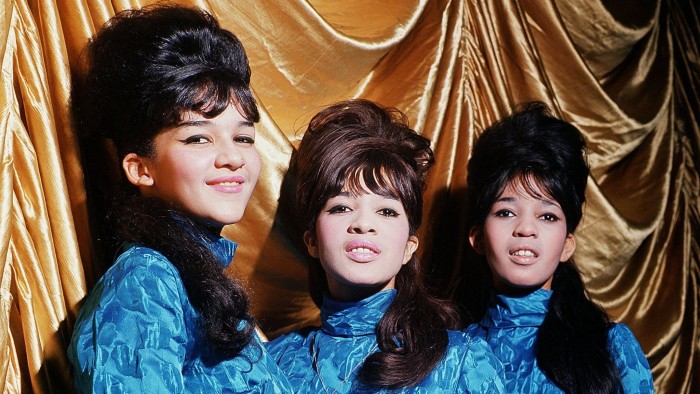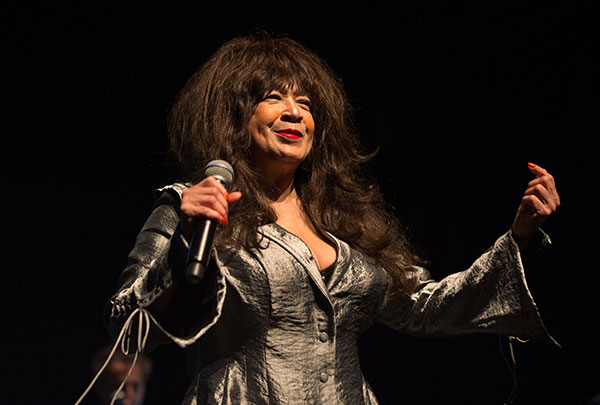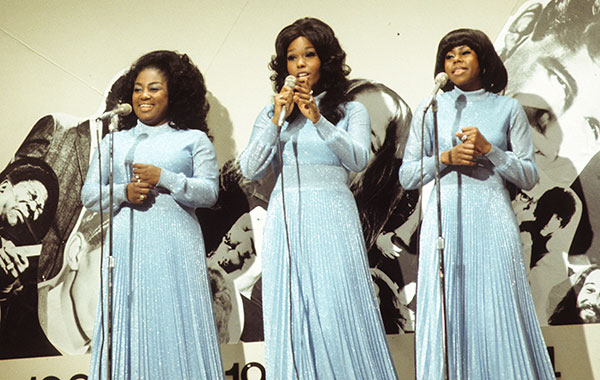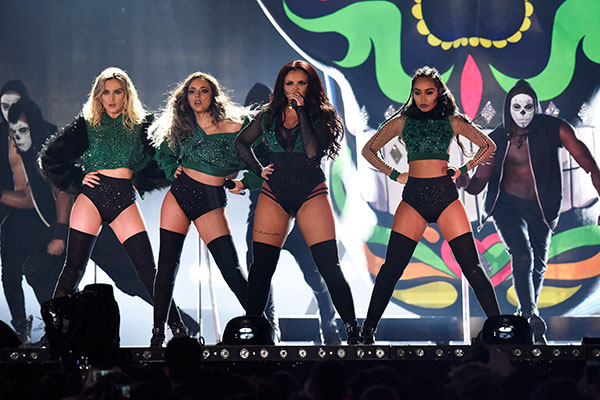Girl groups: the XX factor

Simply sign up to the Life & Arts myFT Digest -- delivered directly to your inbox.
Music snobs reserve their worst contempt for pop songs enjoyed by girls. Boy bands and girl groups receive particularly harsh treatment, mocked as pabulum for a hormonal audience too busy screaming to notice the insipid tunes.
But it was not always so. When Ronnie Spector arrived in London with The Ronettes in 1964, she was delighted to find herself treated like royalty by the leading bands of the day.
“I remember how when we were in England we would go out with The Beatles to a club,” she recalls. “They would always ask us about the American acts, the girl groups: how did we get the different sound, how did we dress, our routines.
“They wanted to know all about the dances: the twist, the hullabaloo, the jerk. When we went to a club, I remember John Lennon would say: ‘Show me that step again.’ It was the time of my life.”
The Ronettes belong to a time when pop was dominated by young women. Between 1960 and 1965, in the period between rock and roll and the British Invasion, all-female vocal acts ruled the charts, bearing peppy names such as The Marvelettes and The Cookies.
The term “girl group” was used to describe them, a coinage that is now almost 60 years old. In contrast, the description “boy band” did not appear until the late 1980s.
Spector, 72, is still performing: she has an album of British Invasion covers out next month, English Heart. When she toured the UK with The Ronettes, their opening act was The Rolling Stones. “We were so innocent back then. There were no drugs, everyone was happy when someone had a hit record,” she says.
She formed The Ronettes in New York with her sister Estelle Bennett and cousin Nedra Talley. Girl group pioneers The Shirelles were an inspiration. So was the teenage doo-wop singer Frankie Lymon, a precursor of the sweet-voiced high tenors who would later be recruited for boy bands.

“His voice just pierced me. I got goose pimples. I was 14 or 15 and really liking guys. When I heard his voice chills ran up and down my spine. I wanted to sing like that,” Spector laughs.
Those goose bumps had a rich historical pedigree. Teenage girls and young women have long been a focus of the recorded music industry, dating to the dance craze of the 1920s, the era of “flappers” and “jazz babies”.
“If it were not for the flapper, the Victor people might as well go out of business,” a trade journal commented, referring to Victor phonograph players. “They buy 90 per cent of the records — mostly dance records.”
As well as being marketed to, women also became more visible as performers in the 1920s and 1930s. The girl group phenomenon of the 1960s intensified the process as teen-pop. Spector was 19 when The Ronettes recorded their first hit, “Be My Baby”, not much older than her audience.
Girl groups had a strong image: towering beehive hairstyles, dark mascara and tight dresses in The Ronettes’ case, a look adapted from their Spanish Harlem neighbourhood. “We took it from the streets, everything we did,” Spector says. “Not like the groups of today, they have a whole entourage of people, make-up artists, choreographers. We never had that.”
Today’s music snobs deride “manufactured pop” as fake, a lazy complaint that makes no allowance for the quality of the manufacturing. With The Ronettes and their girl group peers, the quality was of the highest.

Songs were composed by the leading songwriters of the day, operating from New York’s Brill Building, home to scores of music publishers. The distinctive girl group sound, blending doo-wop, pop and rhythm and blues, required innovative arrangements and production. When the Beach Boys’ Brian Wilson first heard “Be My Baby”, a beautifully orchestrated evocation of juddering desire, he was hit by an epiphany. “I wanted to try to do something as good as that song and I never did. I’ve stopped trying,” he once said.
Powerful, often unscrupulous men played a role in the rise of the girl groups, helping to mould these young, mostly African-American women for a mass market. Phil Spector was the producer behind The Ronettes, a visionary musical creator but also a violent bully. He married Ronnie in 1968, subjecting her to a reign of terror until 1974, when she emerged as though from a kidnapping. “I was sort of taken from it in the ’60s,” she says. “I was like, who am I, what am I? Oh you’re a performer: get back up on stage.”
Despite the presence of male Svengalis, girl groups projected an image of female independence. The Cookies’ “Girls Grow Up Faster Than Boys” is an early example of what the Spice Girls would come to label “girl power”. The Shirelles’ “Tonight’s the Night” addresses a teenager’s ambivalent feelings about losing her virginity, while their “Will You Love Me Tomorrow” anticipates the aftermath.

Contemporary girl groups may have skimpier outfits and racier routines, but they perform a similar role to their predecessors more than 50 years ago. Little Mix, for example, make the tradition explicit with their Ronettes pastiche “Love Me Like You”. Along with their US counterparts Fifth Harmony, the UK foursome are bidding to reverse a fallow decade for girl groups. The conditions for revival are promising.
One Direction’s temporary split has left a void in teen-pop. Solo stars such as Taylor Swift and Beyoncé (formerly of Destiny’s Child) preach a message of female solidarity that finds its embodiment in the girl group. All-female acts thrive in the so-called K-pop and J-pop scenes in South Korea and Japan.
Meanwhile Ronnie Spector continues touring. “When I walk out there and I see these girls with the big beehives, I freak out,” she laughs. “I can’t look too much or I forget my lyrics, you know! To see that 50 years later girls are still coming to my shows. It’s mind-blowing.”
Ronnie Spector’s ‘English Heart’ is out on April 8. Little Mix play the O2 Arena in London on Sunday. Fifth Harmony’s album ‘7/27’ is out in May
Photographs: Sportsphoto Ltd/Allstar; Redferns/Getty; ABC Photo Archives/Getty; Dave J Hogan/Getty
Comments